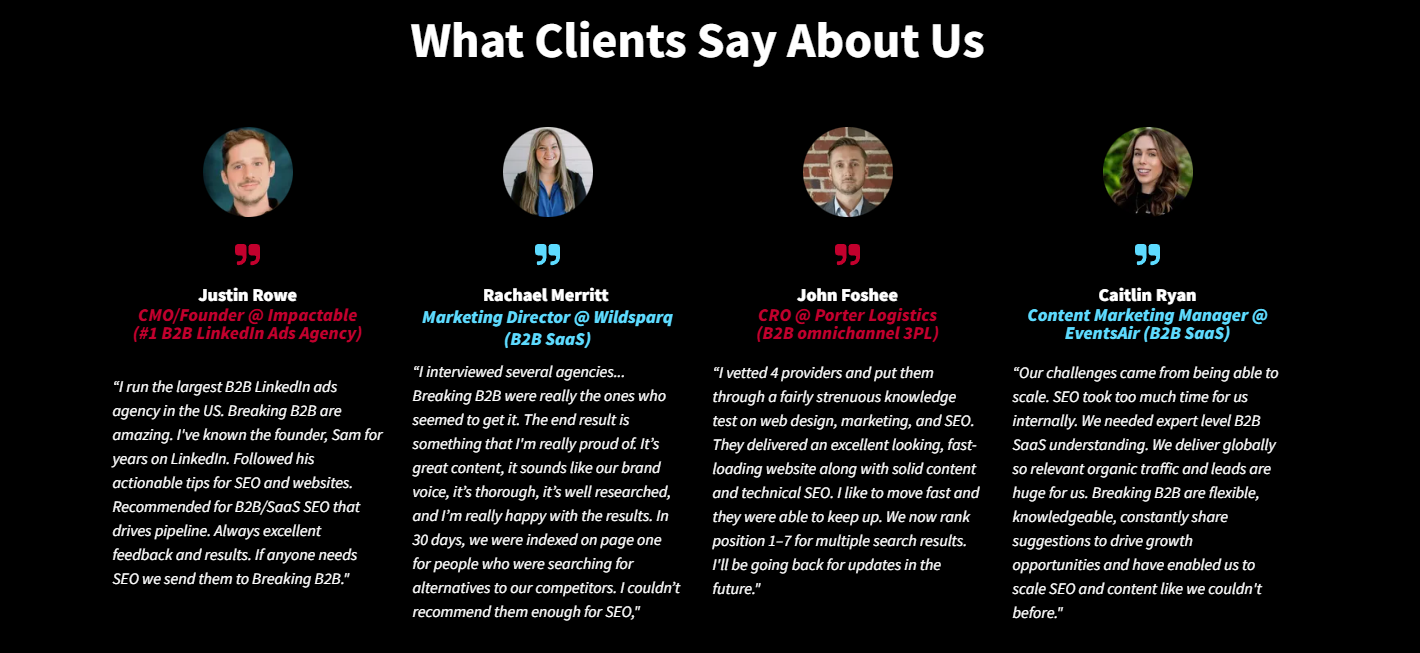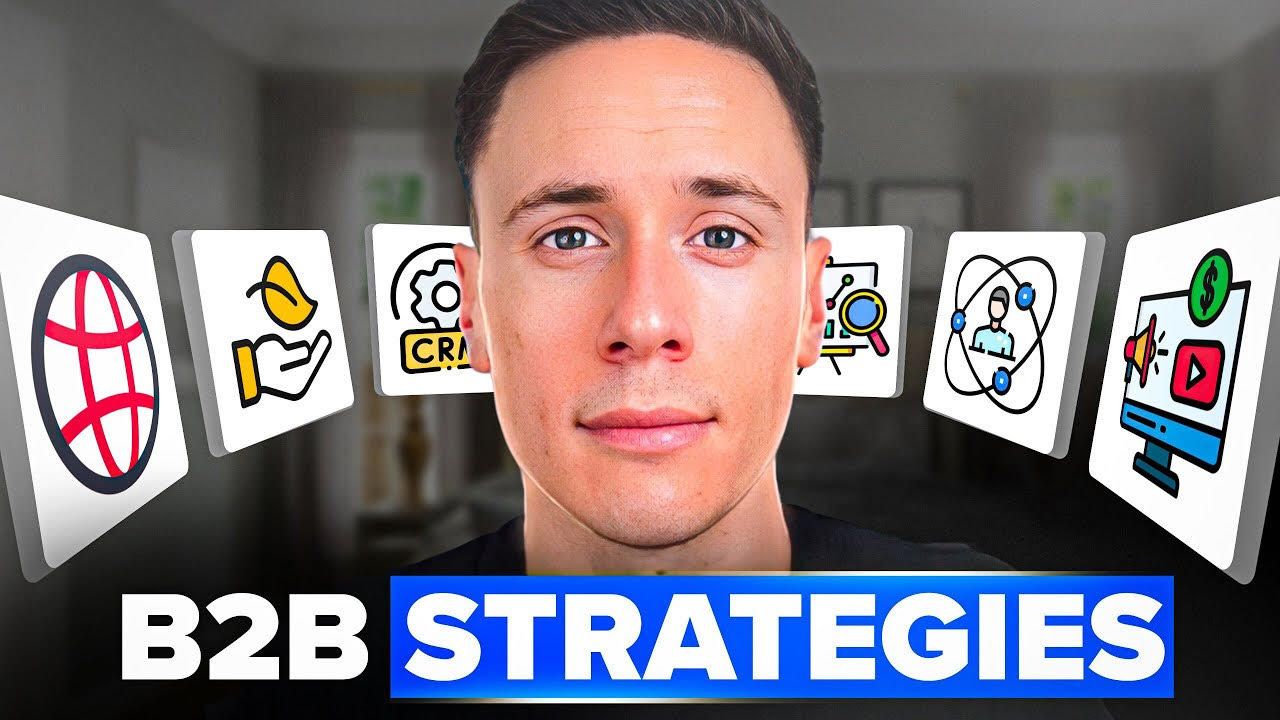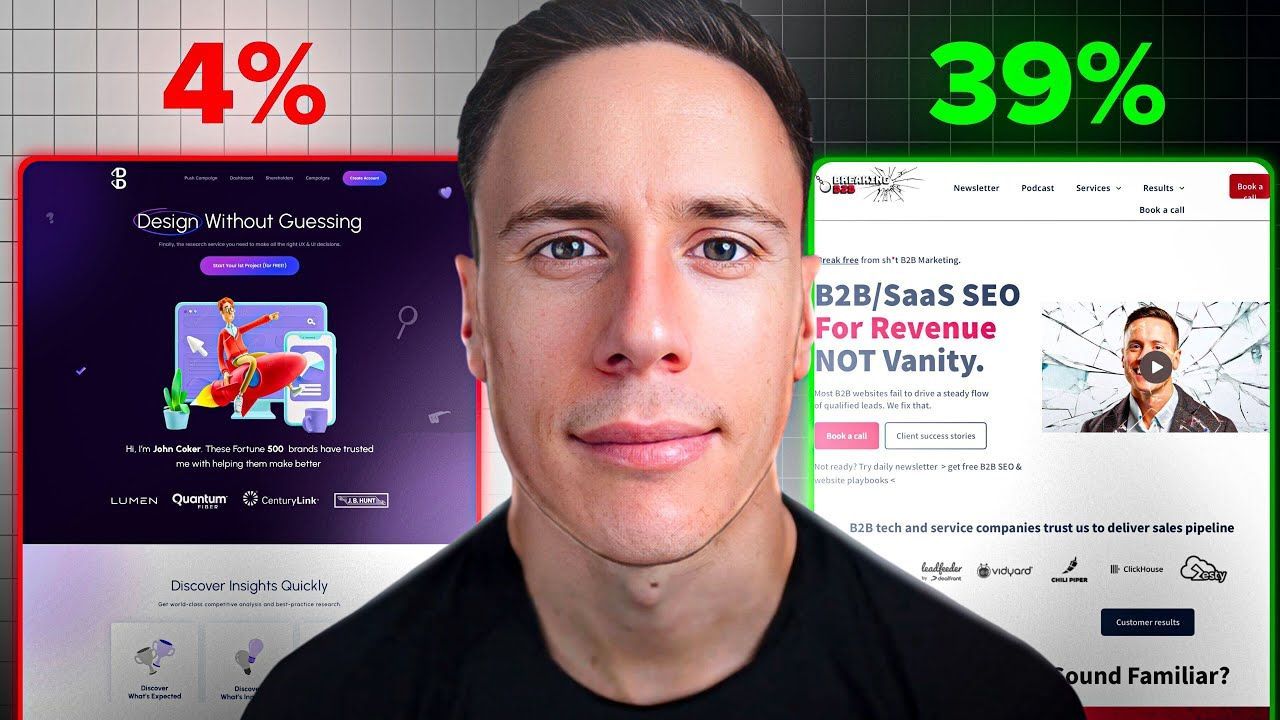Table of Contents
Ready To Grow Organic Pipeline & Revenue?
See if we can scale your organic pipeline from SEO as quick as 90 days.
Quick Summary
Struggling to Identify Keywords That Drive SaaS Conversions?
Effective keyword research is the foundation of a successful SaaS SEO strategy. If you’re targeting the wrong keywords, you risk missing out on attracting the ideal customers who are actively searching for your solution. Finding the right keywords not only boosts visibility but also drives high-converting traffic to your website.
In this Breaking B2B article, we are going to explain how to effectively conduct SaaS keyword research that aligns with your ideal customer’s needs.
But first…
Why Trust Us?
At Breaking B2B, we specialize in SaaS keyword research tailored to
drive real results. With our B2B SEO expertise, we know how to identify the keywords that attract your ideal customers and boost conversions. Trust our proven approach to help your SaaS business rank higher and grow sustainably.

Why Keyword Research Matters for SaaS Businesses
SaaS businesses face unique challenges in attracting qualified leads. Unlike traditional products, SaaS solutions often target niche markets, where customers seek highly specific solutions. If you’re not optimizing for the right keywords, you risk attracting broad traffic that doesn’t align with your ideal customer profile.
By focusing on the right keywords, you significantly impact your visibility, traffic, and conversions.
Long-tail keywords and highly relevant search queries help you connect with users who are deeper in the buying process.
Our 5-Step SaaS Keyword Research Strategy
Step 1: Define Your Ideal Customer
Before we start keyword research, we must first understand who we’re targeting. This ensures we align our efforts with your audience's needs and pain points.
Here's how we do it:
A. Customer Personas
We create detailed customer personas, outlining demographics, goals, and challenges. For example, a "Project Manager at a tech company" might need keywords like “best project management software for tech teams” to target their specific needs.
B. Buyer Journey Mapping
We identify where customers are in the buying journey. If they’re in the awareness stage, they might search for "how to manage projects effectively," but if they’re closer to purchase, they may search “best project management software.” This helps us target keywords that match their intent.
C. Customer Surveys and Interviews
We gather feedback from your customers to understand their language and pain points. If they mention struggling with “tracking project deadlines,” we target keywords around that issue.
Tools we use:
- Google Analytics: To identify who is already visiting your site and engaging with your content, providing insight into the demographics and behaviors of your audience.
- Buyer Persona Templates: To create accurate profiles of your ideal customers and ensure we are targeting the right audience with the right keywords.
Step 2: Conduct Competitor Analysis
Understanding what your competitors are doing is an essential part of crafting a successful keyword strategy.
A. Competitor Research
We start by identifying your main competitors, including those who rank highly for the keywords we’re targeting. We analyze their website, content, and backlink profile to understand what’s driving their rankings.
B. Keyword Gap Analysis
Using tools like
SEMrush or
Ahrefs, we compare the keywords that your competitors are ranking for with the ones you currently rank for. This gap analysis helps us uncover untapped opportunities and gives us insights into areas where we can potentially outperform the competition.
C. Content Strategy Evaluation
We also review the type of content your competitors are producing. What topics are they covering? Are they publishing long-form content or focusing on quick, informative blog posts? This allows us to identify areas where we can improve upon their content, whether it’s in depth, relevance, or optimization.
For example:
If one of your competitors ranks for the keyword “top project management tools for small teams,” but their content is outdated or lacks detailed comparisons, we can create superior content that ranks higher and better serves the needs of your target audience.
Step 3: Perform Keyword Research
This involves using various keyword tools to identify the best opportunities that match your product or service offering.
Here’s how we do it:
A. Use Keyword Research Tools
We leverage tools like
Google Keyword Planner,
SEMrush,
Ahrefs,
and Moz to find the right keywords for your SaaS product. These tools provide data on search volume, keyword difficulty, and competition, allowing us to prioritize keywords that offer high potential for traffic and conversions.
B. Focus on Long-tail Keywords
Long-tail keywords, typically phrases with more than three words, are highly targeted and often less competitive. For instance, instead of targeting a general term like “SaaS software,” we target phrases such as
“best SaaS software for marketing automation for small businesses”. These keywords not only attract users with higher intent but also tend to convert better.
C. Consider Search Volume, Keyword Difficulty, and Relevance
- Search Volume: A high search volume indicates potential traffic, but it's important to balance it with relevance.
- Keyword Difficulty: We assess the competitiveness of keywords to determine if ranking for them is feasible. Higher difficulty may indicate a greater need for off-page SEO efforts.
- Relevance: Keywords should directly reflect what users are looking for and match your SaaS offering.
Step 4: Group Keywords by Buyer Intent
Keywords fall into four primary categories based on user intent:
informational,
navigational,
transactional, and
commercial investigation.
A. Informational Keywords
These are used by users who are seeking knowledge or information. These users typically aren’t ready to make a purchase but are in the early stages of learning about a problem or solution. Keywords often start with phrases like "how to," "what is," or "best practices."
Example: “what is marketing automation software” or “benefits of using SaaS for businesses.”
B. Navigational Keywords
These keywords are used when users are looking for a specific brand, product, or service. Users are often closer to conversion and are looking to visit a particular website.
Example: “Salesforce CRM” or “Slack communication tool.”
C. Transactional Keywords
These indicate high purchase intent. Users searching these terms are ready to make a decision and typically use phrases like “buy,” “pricing,” or “free trial.”
Example: “buy project management software for small teams” or “sign up for SaaS marketing tool.”
D. Commercial Investigation Keywords
Users in this phase are gathering information about brands and products, often comparing options and weighing the best choices. Keywords might include phrases like “best,” “top-rated,” or “review.”
Example: “best CRM software for startups” or “comparison of SaaS solutions for marketing.”
Step 5: Refine and Prioritize Our Keyword List
Once we've grouped our keywords by buyer intent, it's time to narrow them down and prioritize the ones that will deliver the most value for your SaaS business.
A. Assessing Keyword Potential
We focus on keywords that will have the greatest impact on traffic and conversions. This involves evaluating:
- Search Volume: We prioritize keywords that have a decent search volume to ensure we're targeting terms with the potential to bring in significant traffic.
- Competition: By using tools like Ahrefs or SEMrush, we check the competition level of each keyword. Our goal is to find a balance between high-volume keywords and those with achievable competition levels.
- Relevance: Keywords need to be closely related to your SaaS product and address the needs of your target audience. We eliminate any terms that are too broad or don’t align with your offerings.
B. Long-tail vs. Short-tail Keywords
While short-tail keywords might seem appealing due to their search volume, they are often highly competitive. We place a higher focus on long-tail keywords, which are more specific and typically have lower competition.
C. Ongoing Refinement
Keyword trends change over time. We continuously monitor the performance of our chosen keywords and adjust the strategy based on new insights. Regularly revisiting the list ensures we're staying competitive and capturing new opportunities.
Let Breaking B2B Handle Your SaaS Keyword Research Strategy
Keyword research is the backbone of any successful SEO strategy, especially for SaaS businesses looking to target the right audience. By identifying the right keywords, you can ensure your content reaches potential customers at the right moment.
Overwhelmed by the process? Let Breaking B2B guide you. We specialize in crafting tailored keyword strategies for SaaS companies that align with your business goals. With proven success helping companies like EventsAir and Wildsparq, we ensure your SaaS business stands out and attracts qualified traffic.
Ready to refine your keyword strategy?
Contact Breaking B2B today.







